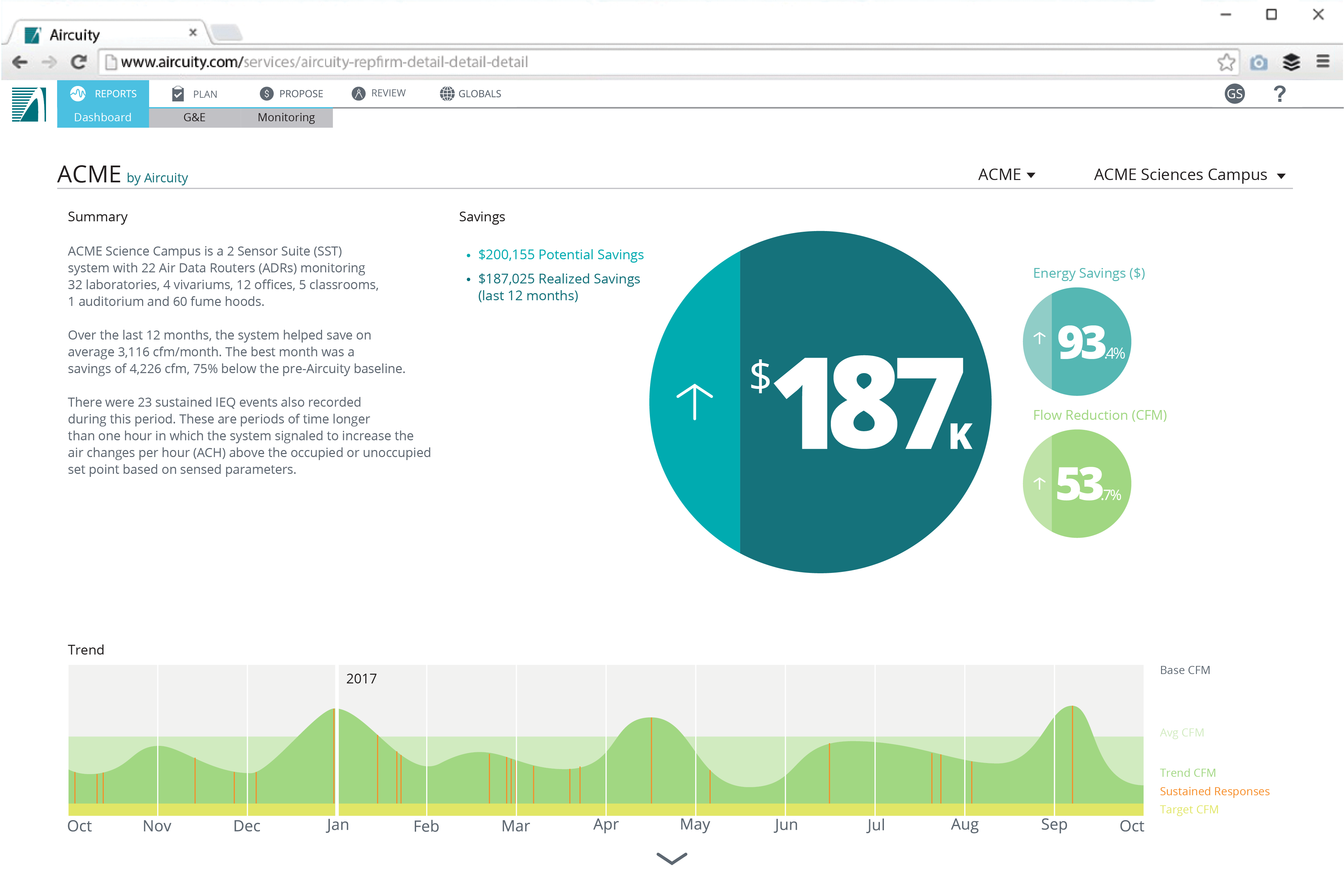NEWTON, Mass., USA – Aircuity, (www.aircuity.com), creator of measurably better environments, announces that it will begin installation at three laboratory research buildings at the Virginia Commonwealth University (VCU) School of Medicine. Aircuity is acting as the turnkey contractor for the installation of Aircuity’s intelligent building platform along with upgrades to controls and exhaust systems.
Part of an $18 million performance contract between the university and Schneider Electric, the Aircuity system will decrease the energy usage in Sanger Hall, Kontos Hall, and Robert Blackwell Smith Hall. The energy savings from Aircuity will be used to address deferred maintenance projects in two of the buildings, including controls upgrades in both Kontos and Robert Blackwell Smith Halls and a consolidation of rooftop exhaust fans in Robert Blackwell Smith Hall. Building upgrades will be performed in conjunction with Aircuity Channel Partner, Metropolitan Equipment Group.
In addition to deep energy savings and helping to address VCU’s deferred maintenance backlog, Aircuity will enhance the Indoor Environmental Quality (IEQ) for occupants of the labs. Through the Aircuity 2.0 web app, multiple constituents at the university will have access to continuously captured data and analytical tools that provide data on savings achieved, protection provided to occupants and additional opportunities for improvement
Since its launch in 2000, Aircuity has been the leader in demand control ventilation and indoor environmental quality solutions. The system is implemented in more than 200 laboratory and higher education facilities around the world, including Michigan State University, University of California, Irvine and Northwestern University. Aircuity 2.0, which was launched in May, further distinguishes Aircuity as the most robust, efficient, and verifiable airside solution available.

ABOUT AIRCUITY
Aircuity creates smart airside solutions through its intelligent building platform, significantly reducing energy costs and improving the indoor environmental quality for occupants. As the demand control solution, Aircuity optimizes ventilation rates through its patented technology. As a result, commercial, institutional and lab building owners can lower operating costs, protect occupants and verifiably reduce energy use by as much as 60 percent. Founded in 2000 and headquartered in Newton, MA, Aircuity’s solutions have benefited over 400 organizations such as Google, Amazon, Eli Lilly, Masdar City, the University of Pennsylvania, and the University of California-Irvine. For additional information on the company and its solutions, please visit: www.aircuity.com.